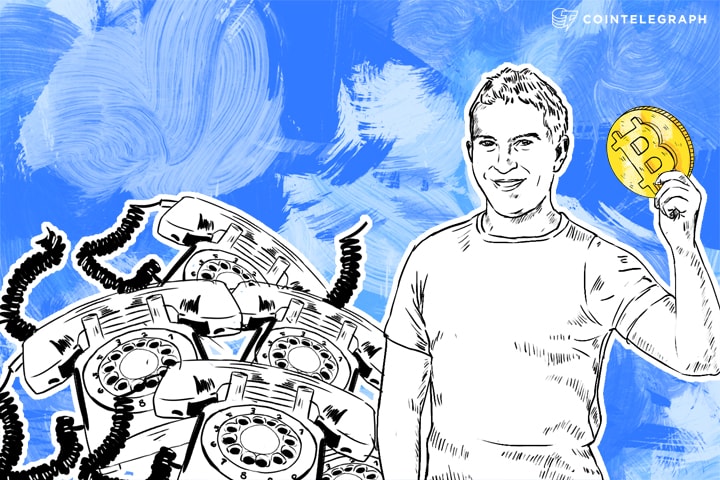For those who exist in the gray and darker areas of the legal spectrum, pre-paid “burner” phones offer a convenient, workable way to avoid surveillance. Buy a phone at a gas station with some prepaid minutes, call or text your clients, get rid of the phone before the authorities are even aware of the number.
There are problems with that method. The hardware is an unnecessary expense, gas station attendants might wonder why you keep buying new, cheap phones and of course there is a stigma attached to carrying multiple phones. Not everyone with the need for a disposable number exists in that aforementioned gray and dark areas, after all.
There are mobile apps that act as a burner, but they require connections to credit cards and other personal information and the most popular ones expire if you don't pay a monthly fee.
Bitcoin and cryptocurrencies aren't going to make communication cheaper. That is the Internet's job and it is doing it very well. Whatsapp, Skype, WeChat, and similar apps are the tools that the old guard fear, because with them, we have little need for traditional telecommunication companies. It is worth pointing out that ChiliPhone has reportedly come in with lower prices than long-distance phone companies, it seems unlikely that it can compete with internet based chat clients.
What BitSMS has been doing and what ChiliPhone is now doing, (intentionally or not) is letting users pay a small premium to not have that thread of communication picked up by traditional surveillance methods.

It should be pointed out that these services aren't completely anonymous. If the NSA or GCHQ or another well-funded spying organization wants to look at your communication specifically, they likely can. While BitSMS and ChiliPhone don't require any personal information, your PC itself could be being monitored by authorities, including everything you record or type.
Still, when dealing with local law enforcement who rely on more traditional methods like tapping phones, or wanting to avoid the massive and indiscriminate spying “sweeps” of organizations like the NSA, BitSMS and ChiliPhone can be easy to use tools.
BitSMS recently lowered their prices (to about US $0.11) per text, and they accept a few altcoins in addition to Bitcoin (Sterlingcoin, Guldencoin and Darkcoin). Better yet, you can send any of those cryptocurrencies through text message using BitSMS. If you wanted to buy something from your friend anonymously, or pay him or her back for a previous debt, you could send the payment and the details in the same message.

ChiliPhone allows you to make phone calls using bitcoin. You simply put in a phone number, they will price in in mBTC per minute, hit connect, and the call goes through. The cost is small: domestic calls were on the order of 0.07 mBTC (or 0.00007 BTC) per minute. Not insignificant, but not too high of a barrier of entry. Any unused bitcoin will be returned to your ChiliPhone wallet, which can be emptied at anytime and will automatically return any remaining bitcoin to the addresses that sent it originally, every thirty days.
These solutions to the “The Great Millennial Spying Problem” are not complete ones. They are not even on the level of something like Silent Circle. The so-called “Five Eyes” governments spy on the vast numbers of people in some way. Most of them, even the guilty few, use regular methods of communications. Most drug dealers for an example, still communicate with simple text and phone conversations. BitSMS and ChiliPhone let you dodge at least the vast sweep up of conversations without forcing the party on the other side to participate. Agencies will still pick up your message, but at least they won't know who sent it without doing some digging.
These two companies may not enjoy my characterization of them. It is important to note that nothing on either website talks about the ability to send messages while avoiding the NSA, or promoting any kind of activity that would catch their ire. They aren't even real privacy tools. But, when I see their ease of use and crypto integration, I can't help but think first line of defense, and that is something that can't be said for the likes of Skype.
Did you enjoy this article? You may also be interested in reading these ones:


